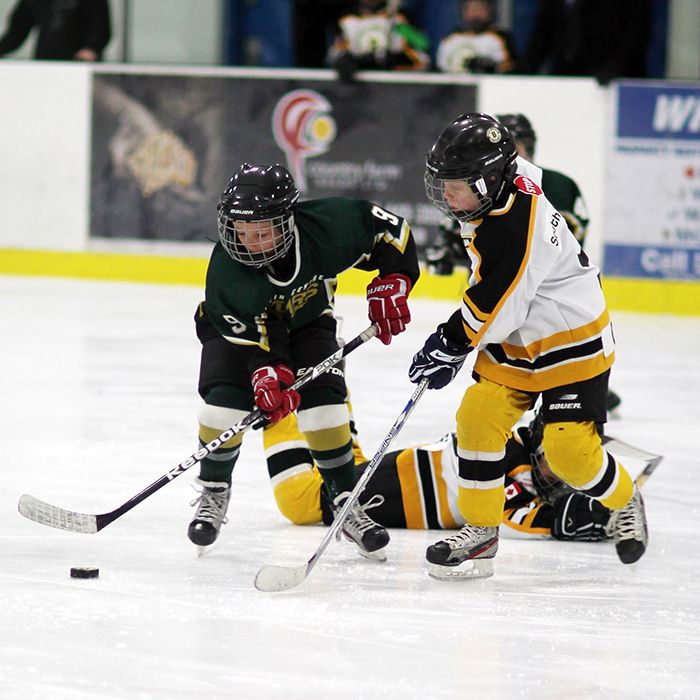Every year, especially in hockey-mad Canada, parents have to make a choice. Do they keep their child specialized in a single sport, or encourage them to play a variety of sports throughout the year?
More and more, research is being released saying early sport specialization is not the answer, and athletes will improve more, and stay with sports longer, if they’re encouraged to play a number of sports as youths.
LEADWAVE Technologies from Chatham Voice on Vimeo.
“I am totally for kids playing several sports from grade 1 to 10,” said Jeff Phaneuf, who coaches volleyball and rugby in Chatham. “I have watched kids play one sport with incredible passion and love for it, then watch it dissolve from being burnt out.
“Kids should play. Play different kinds of sports, learn a variety of skills as well as be lead by a variety of coaches with different knowledge.”
Phaneuf is not alone in his assertion, and it appears coaches are now buying into the idea that playing one sport, year round, at an early age is not the answer.
“Early specialization is not the answer,” said Colin Roeszler, one of the area’s top strength and conditioning coaches, who works with many of Chatham-Kent’s top sporting prospects.
“I think parents need to be more aware of the periods of sensitivity in a child’s growth. The most important time for skill acquisition is between the ages of eight to 14 years old,” Roeszler continued. “This means that young athletes need to be exposed to as many different stimuli as possible, so ultimately, they should be playing as many sports as possible through the year.”
Whether it’s hockey, volleyball, basketball, or soccer, specializing too early in one sport, according to new research, is a mistake for a variety of reasons. From mental burnout, to physical fatigue, too much of any one sport could be negative for young athletes, even though specialization is intended to give them the edge.
“A real concern that I have is the wear and tear on their bodies,” said Phaneuf. “Doing repetitive actions, with little recovery time. “
“Give your kid a break from the ice,” said Roeszler, who believes minor hockey is one of the worst sports for early specialization. “Allow them to unwind their mind and body from the sport. Have them participate in other sports to gain physical movement competency.”
Think this is wrong? Think again. Top athletes, including the area’s most successful hockey players and athletes in general, are typically excellent multi-sport competitors. In particular, Roeszler points to local stars, including NHL veteran Ryan Jones, and OHL prospect Joseph Raaymakers, as well as NHL superstar Steven Stamkos.
“I know Steven Stamkos’ former strength and conditioning coach personally. He told me that before Steve played only hockey, he was good enough for a full athletic scholarship in soccer, baseball, and track and field,” explained Roeszler. “I look at athletes I have trained. Ryan Jones was the best player on provincial-winning volleyball and soccer teams in high school. Joseph Raaymakers is one of the best pure athletes I have ever trained, and this is the main reason I think that he is one of the most promising goaltenders of the future for the Ontario Hockey League.”
Despite the sentiment that early specialization is detrimental, experts and coaches alike also agree that specialization after key movement skills are acquired, is necessary.
“I really think once kids are in high school, Grade 10, they should start to specialize if they are passionate and want to strive for the next level,” says Phaneuf.
Roeszler agreed.
“I think that only between the ages of 16-18, should athletes choose one sport to focus on for the remainder of their athletic careers,” he said, stating burnout and injuries are a constant concern for those who specialize before this age.
The bottom-line however? Get kids involved, allow them to play, and find a sport that becomes a passion when it comes time to choose.
“In the long run, kids should play what they love and be introduced to sports with a challenging skill set and a new group of teammates with which to play,” said Phaneuf, who says his school has seen rugby players enter having never seen the game, and leave advancing to a higher level.
“Bottom line,” asserts Roeszler, “Get your kids involved in a lot of sports, and into a sound strength and conditioning program. These two things pay dividends down the road, as they ultimately choose the one sport they wish to specialize in when they approach more elite levels.”








“I look at athletes I have trained. Ryan Jones", I wouldn't say 4 mornings watching him do his own assigned off season workouts is training him.